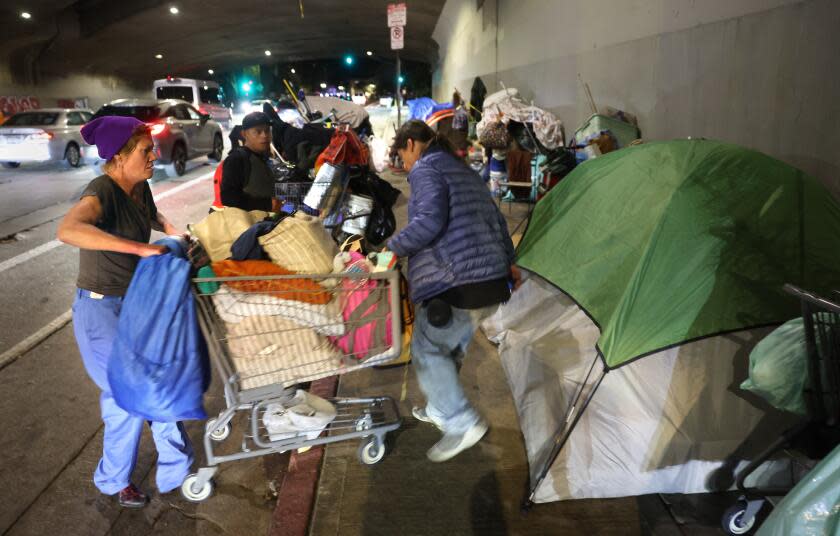L.A. agrees to pay up to $2.2 million for outside audit of homelessness programs

The Los Angeles City Council agreed Friday to pay up to $2.2 million for an outside audit of homelessness programs that was ordered by a federal judge.
But the commitment fell short of the $2.8 million to $4.2 million proposed by the firm selected by U.S. District Judge David O. Carter to conduct the audit. The council did not explain its rationale for setting the lower amount.
After initially indicating in a hearing Friday afternoon that he would accept the offer, Carter recalled the city's attorneys as they headed for the courtroom door and warned them that he was not satisfied.
"I can't have a substandard audit," he said. "It can't be $100,000 short or even a million short."
Read more: A federal judge orders a sweeping outside audit of L.A. homelessness programs
Carter said he wanted to hear from the auditing firm, Alvarez & Marsal, as to whether it could complete the scope of work on the city's set budget.
"The council does not control the amount," he said. "If that audit falls short, we are back in litigation."
The audit has become the latest snag in a 2020 lawsuit filed by a group called the L.A. Alliance for Human Rights, which alleged that the city and county were failing in their duty to provide shelter and services for people living on the streets.
Both the city and county have since reached settlements providing for thousands of new shelter beds and mental health and substance use treatment.
Read more: Are L.A.'s anti-camping laws failing? We went to 25 sites to find the truth
The demand for an audit arose in February, when the L.A. Alliance — representing business owners, residents and property owners — filed a motion asking Carter to sanction the city $6.4 million for missing deadlines.
In prior hearings, Carter said he was not inclined to order sanctions because the money would be better spent helping homeless people — though he said the law firm representing the alliance should receive compensation.
In a closed session Friday, the L.A. City Council agreed to pay Umhofer, Mitchell & King LLP $725,000.
Carter accepted that figure but had repeatedly made clear that the fees weren't the element of the sanctions request that mattered to him most.
Saying he wanted more transparency about money spent on homelessness, Carter focused instead on the L.A. Alliance’s demand for an audit.
At his insistence, attorneys for the city and the alliance selected several outside auditing firms to bid for the job.
Three firms presented their proposals to the court Thursday. One said it could conduct the audit for $320,000 but did not convince the parties that it could adequately do the job.
Another firm's bid came in at $1.1 million. An attorney representing the city, Scott Marcus, said Friday that he initially found that firm capable of the job but had since received disqualifying information, though he did not elaborate.
Matthew Umhofer, an attorney representing the L.A. Alliance, said the remaining firm, Alvarez & Marsal, was the only one acceptable to his clients.
Read more: Veterans' demand for more housing in West Los Angeles to go forward in federal court
During its closed session Friday, the council agreed that it would pay between $1.5 million and $2.2 million for the audit.
Carter said he too preferred Alvarez & Marsal and continued Friday's hearing until Monday to confer with the firm.
This story originally appeared in Los Angeles Times.

